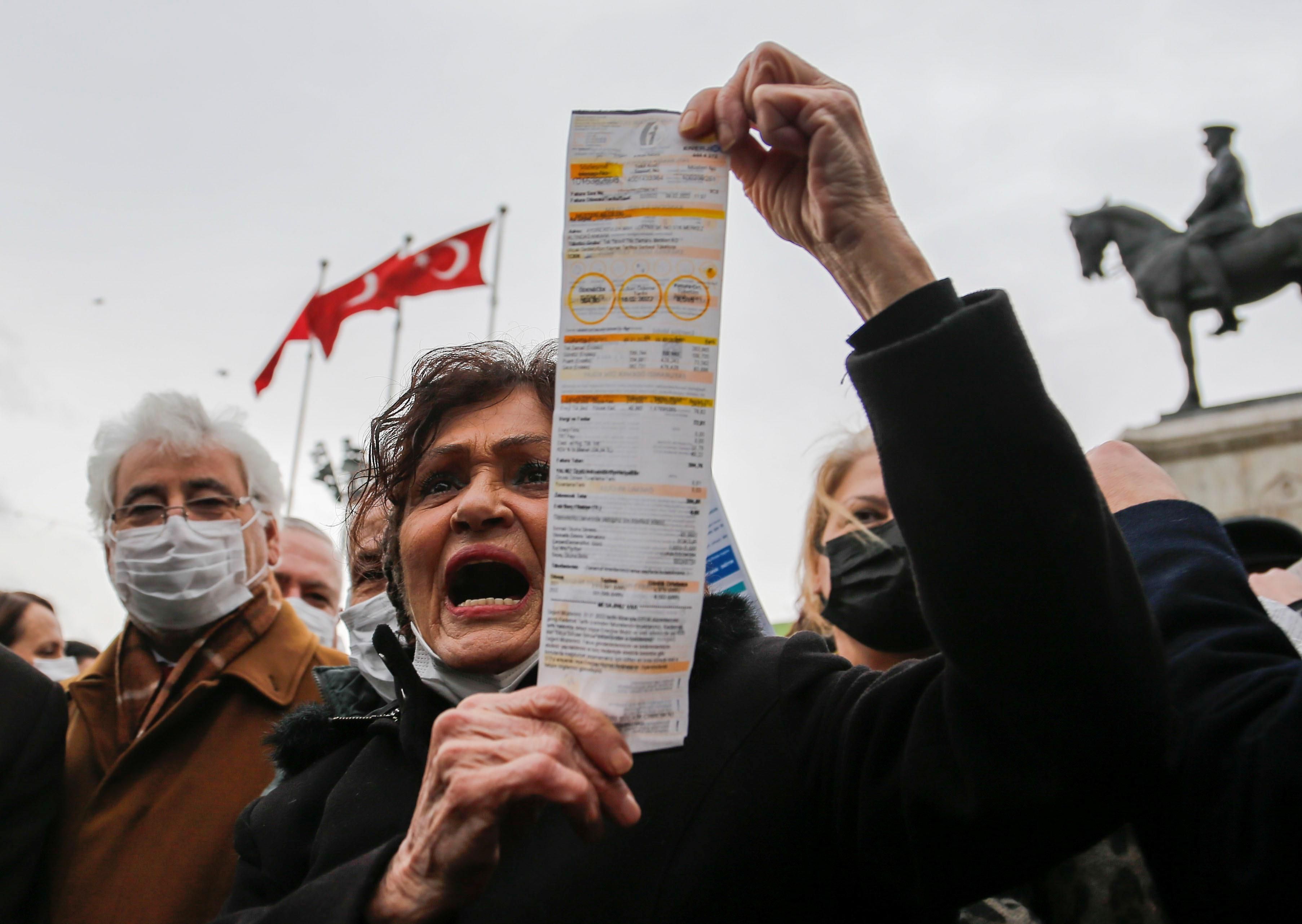Hard Numbers: Turkish inflation soars, Nicaraguan NGO crackdown, Taiwan rejects pricy US choppers
May 05, 2022
A woman displays her electricity bill during a protest against high energy prices in Ankara.
REUTERS/Cagla Gurdogan
70: Turkey's monthly inflation rate skyrocketed to almost 70% in April, a two-decade high. Critics blame President Recep Tayyip Erdoğan, who continues to baffle economists by lowering interest rates to combat rising prices.
50: Nicaragua's parliament shut down 50 NGOs for failing to comply with government regulations like submitting financial statements. The NGOs say they tried to turn in the documents, but authorities refused to take them. The organizations were likely up to things strongman President Daniel Ortega didn’t like, such as defending human rights.
12: Taiwan won't buy 12 anti-submarine helicopters from the US because they're … too expensive. Unless the Taiwanese are trying to haggle, this doesn't bode well for broader US plans to help the self-governing island defend itself against China.